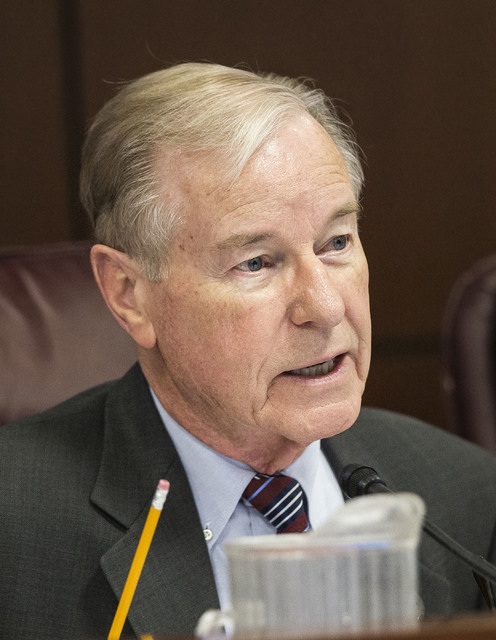Bill in Nevada Legislature aims for dignity at the end of life
To hear the heartbreaking testimony — on both sides — of the so-called death with dignity debate is to plunge oneself into the wrenching maw of doubt.
Advocates for the practice argue a person’s right to self-determination and relief from terrible suffering justifies passage of Senate Bill 261, which would allow physicians to prescribe a lethal dose of medication for terminally ill patients.
Opponents argue no one really knows how long a person with a terminal diagnosis can live, and that medicine is meant to relieve suffering, not take life.
Anyone who’s lived through the death of a loved one can grasp both sides. No one wants to see someone they love in the grips of a fatal disease, slowly wasting away as the person they once were is subsumed by illness. But people who’ve been through it also wouldn’t trade any of the memories they made before the end finally came. In fact, they’d give up a lot in exchange for more time.
That’s why this is one of the most vexing issues before the Nevada Legislature, freighted with emotion, experience and empathy. It’s why the bill, sponsored by Democratic Sen. David Parks of Las Vegas, attracted a Republican and a non-partisan as co-sponsors.
The bill would allow patients given a terminal diagnosis with six months or less to live to ask for the life-ending prescription. Two doctors would have to concur on the diagnosis, and the patient would have to ask twice, at least 15 days apart, before proceeding. And a doctor would have to meet with the patient alone to ensure he or she wasn’t being coerced.
If the physicians entertained doubts about the patient’s mental state, they’d have the option to refer the patient to a psychologist or psychiatrist, and await a determination before they could proceed. And a patient could revoke a request at any time (and many do; in Oregon, which already allows the practice, about a third of patients ultimately decide not to go through with an early death).
Opponents at a hearing last week argued the practice amounted to physician-assisted suicide. Dr. Joe Hardy, a state senator from Boulder City, asked why patients who choose to take lethal drugs wouldn’t be considered suicides under the law.
“It’s not suicide,” replied Peg Sandeen of the Death with Dignity National Center. “These people are dying. These people are dying.”
But when are they dying? Dr. Brian Callister, a physician who has practiced in Nevada for 30 years, said death sentences aren’t certain. “We’re very bad at predicting how long someone’s going to live when we give them a terminal diagnosis,” he said. “And we’re often very wrong. And there’s a lot of quality of life out there, because once you take those pills, there’s no going back.”
But proponents argue helping people choose when to end their lives — knowing a terrible, lingering and painful death awaits them — is helping. Dr. Jerry Cade, a longtime Las Vegas physician, said he initially had doubts, but changed his mind over the years based on his experience with dying patients.
“It hit me that there are things worse than death,” he said at last week’s hearing.
That point was driven home by Deborah Ziegler, whose daughter, Brittney Maynard, chose to end her life in late 2014 because of an aggressive brain tumor, but not before she experienced seizures and loss of balance, eyesight, hearing and even smell. Ziegler recalls with painful clarity what Brittney told her when a surgery meant to save her life turned out to be ineffective.
“ ‘Mom,’ she said. ‘Death is coming for me,’ ” Zigler recalled through tears. “Sometimes, you can call everyone in the world, you can call doctors all over the world, and death won’t back down.”
And at that point, no matter how you see the death with dignity debate, we can all acknowledge there are no good choices left.
Contact Steve Sebelius at SSebelius@reviewjournal.com or 702-387-5276. Follow @SteveSebelius on Twitter.




























